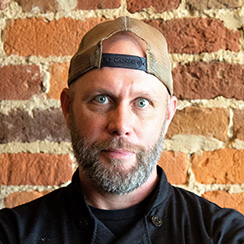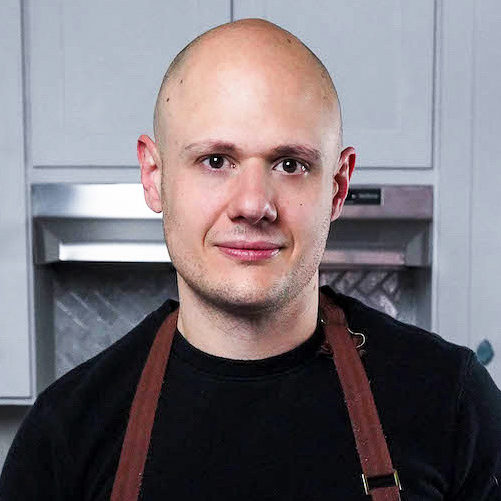There are many reasons a chef might, at some point, become an “ex-chef.” Maybe they’ve been working in a restaurant kitchen for decades and are ready for a change of pace. Maybe they’ve grown tired of their current position and are seeking something different to keep their mind challenged. Perhaps family or personal responsibilities have shifted or they’re looking to cut back the number of hours worked in retirement.
If you’re a chef deciding to pursue a career change, or you simply want to explore some future options, fear not. Here are a few different career paths an ex-chef can pursue.
Chef Instructor
Do you have a passion for education? Did your education make all the difference in your career trajectory?
A career as a chef instructor allows you to pass on your chef experience to the next generation of culinarians. It can be incredibly rewarding to impart valuable knowledge that someone told you (or that you wish someone had told you!)
Depending on what level you wish to teach — be it a high school vocational lab or a postsecondary class — a combination of credentials and experience are often necessary to become a professional chef instructor. Some schools require a certain number of years as a head chef; others may require a certification in culinary education from an organization like the American Culinary Federation (ACF).
“My education with Escoffier has really given me a good foundation. It has filled a resume gap, it’s filled a professional gap and a skills gap. It has helped me in all aspects of my culinary career.”
Lance McWhorter, Escoffier Online Graduate; Executive Chef/Owner, Culture ETX; Food Network “Chopped” Contestant
Escoffier’s Chef Instructors have extensive experience in professional kitchens that allows them to speak directly to the real-life experiences students will eventually face in the industry.
Research & Development Chef
If you’re fascinated by the art and science of the kitchen, and always experimenting with flavors, textures, and ingredients, you might consider R&D. The field of research and development provides a tremendous array of opportunities for ex-chefs.

Often, this involves working with a manufacturer in their product development department. Being an R&D Chef certainly requires credentialing. The Research Chefs Association offers several designations, including Certified Research Chef (CRC®) and Certified Culinary Scientist (CCS®).
“One of the things that’s really helped me in my position is my relationship with the Research Chefs Association, which gives me a whole battery of folks who also work in food development careers and who are willing to answer questions, support each other and do things together. No one person can ever have the answer to every problem. And I run into that a lot. We’ll take on projects that can be quite difficult and very esoteric regarding the information and the actual needs for the project. So I have to rely on that network of people to help support me.”
Chris McAdams, Research Chef Consultant and Escoffier Boulder Graduate
Escoffier students learn a lot about R&D concepts through our various culinary programs offered. For example, the Science of Nutrition course covers nutrients, food sources, and their utilization in the body, as well as current global nutritional issues. The Menu Design course explores different types of food and beverage menus, while World Cuisines dives into global flavors and how to work with them.
Food Stylist or Photographer
Have an eye for culinary aesthetics? Know what type of plating looks right for a certain setting? Have a knack for the perfect lighting to accentuate your food display?
Working as a food stylist allows you to flex your artistic muscles to make food look mouth-watering to viewers, whether they be flipping pages or scrolling screens. Food stylists often work with magazines, movie or television sets, or even marketing agencies. Joining an organization like the International Association of Culinary Professionals can help ex-chefs distinguish themselves among the competition — as food styling is, indeed, a competitive industry.

Whether you’re looking to make the move into styling or photography, a foundational culinary education can only help. Understanding food is undoubtedly crucial to being successful in either of these careers.
“I think Escoffier’s online education makes a student very competitive. My culinary education so far has really helped develop my teaching skills, as well as my food styling. I would absolutely recommend Escoffier. It’s affordable, it’s flexible, and it’s comprehensive.”
Laura DeVries, Escoffier Online Graduate and Senior Graphic Designer, Creative Circle
Author
Over years (or decades) of working as a professional chef, you’re going to accumulate a wealth of knowledge from personal experience. And if teaching doesn’t sound like the ideal profession for you as an ex-chef, there’s always writing.
Many world-renowned chefs have written books — whether memoirs, cookbooks, or food histories — that have hit the bestseller lists. Chefs at all levels of their careers are often avid readers and can glean a lot in the way of professional development from these books.
If you already enjoy writing, it can be helpful to start gathering your thoughts and jotting some notes while you’re still working as a chef. Later, you can pen a memoir or story collection, or author a cookbook. Keep in mind that while self-publishing works for many, the most successful authors typically work with literary agents and publishers.
Influencer
We’re in the age of influencers, and if the idea of promoting a food product or concept via digital media is appealing to you, this might be a path for you.

But you can already start as a food influencer with a camera and some social media savvy. Whether you’re using a visual platform like Instagram or, like Escoffier Chef Instructor Steve Konopelski, creating your own Youtube channel (The Sweet Life of Steve), you can start building your base of followers.
Remember, though, that being a food influencer alone rarely provides enough to pay the bills, unless you have thousands of followers or a notable reputation in the industry. So to start, this option makes a good side hustle or a part-time gig for ex-chefs.
Consultant or Restaurant Manager
Of course, you can take your expertise and help others in the industry looking for guidance. Coaching and mentorship have become commonplace in nearly every industry, but especially in the culinary world.

Managing a restaurant is an option too, particularly for ex-chefs who want to stay close to the kitchen. This career choice requires know-how about the business side of the house, so education is typically needed.
Escoffier’s Hospitality & Restaurant Operations Management programs can help with building these business skills — so you can directly apply the practical knowledge you’ve learned from working in a kitchen environment with the strategy needed to succeed in the industry.
“A strong educational background can help someone with limited experience become a valued contributor to their employer. They can utilize the skills taught at Escoffier to work their way into a management position.”
Chef Maria Davenport, Escoffier Hospitality & Restaurant Operations Management Instructor
Consider Continuing Your Education at Escoffier
Regardless of how long you’ve been in the industry, remember that it changes constantly. While your years as a chef will certainly give you experiential knowledge, you’ll likely need some supplemental education if you want to make a career shift.
Escoffier’s variety of programs can help keep you on the cutting edge of the latest tools and techniques. And a degree in culinary arts, baking & pastry, or hospitality & restaurant operations management is going to look great on your resume, especially if you have little to no experience in a new area.
Talk to us to find out more about our on-campus programs or how our online degree offerings can allow you to start your education while still working as a chef or building a new business.
Was this article helpful? Read these next:

 “My education with Escoffier has really given me a good foundation. It has filled a resume gap, it’s filled a professional gap and a skills gap. It has helped me in all aspects of my culinary career.”
“My education with Escoffier has really given me a good foundation. It has filled a resume gap, it’s filled a professional gap and a skills gap. It has helped me in all aspects of my culinary career.” “One of the things that’s really helped me in my position is my relationship with the Research Chefs Association, which gives me a whole battery of folks who also work in food development careers and who are willing to answer questions, support each other and do things together. No one person can ever have the answer to every problem. And I run into that a lot. We’ll take on projects that can be quite difficult and very esoteric regarding the information and the actual needs for the project. So I have to rely on that network of people to help support me.”
“One of the things that’s really helped me in my position is my relationship with the Research Chefs Association, which gives me a whole battery of folks who also work in food development careers and who are willing to answer questions, support each other and do things together. No one person can ever have the answer to every problem. And I run into that a lot. We’ll take on projects that can be quite difficult and very esoteric regarding the information and the actual needs for the project. So I have to rely on that network of people to help support me.” “A strong educational background can help someone with limited experience become a valued contributor to their employer. They can utilize the skills taught at Escoffier to work their way into a management position.”
“A strong educational background can help someone with limited experience become a valued contributor to their employer. They can utilize the skills taught at Escoffier to work their way into a management position.”

